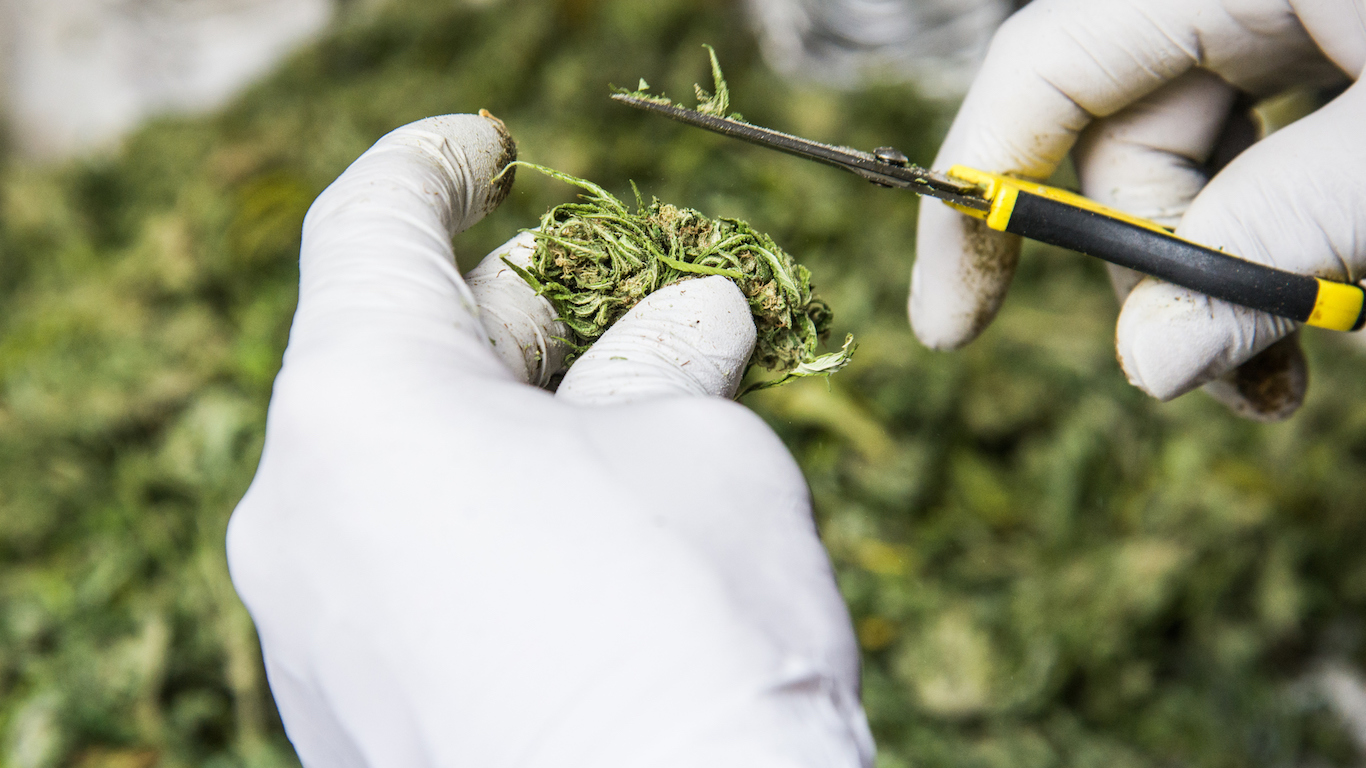Companies and Brands
Routine Event Brings Irregular Selling in Top Marijuana Stock

Published:
Last Updated:

Tilray Inc. (NASDAQ: TLRY) was one of the major winners of both legal cannabis and in the realm of initial public offerings (IPOs) in 2018. After the company priced its IPO at $17 last July, the stock surged higher at the open and kept on going and going, like a certain bunny rabbit, to as much as $300 before finally peaking in 2018. Now its shares are back under $100, and a routine IPO lock-up expiration has removed almost 10% of the value of its shares in just one day.
Tilray is a leader in the cultivation, production and distribution of medical cannabis and cannabinoids. Its market cap is currently more than $8 billion.
Before thinking about Tilray’s magical rise and subsequent drop, the thing to know about any company that goes through an IPO is that there are always lock-up expiration dates. They are routine, whether or not an IPO is considered to be hot. These so-called lock-ups are called that because insiders, employees and venture backers who did not sell in an IPO have what is usually a 180-day period during which they cannot sell their shares into the market. These IPO lock-up periods are generally meant to keep the market from being flooded with too many shares in a young company. There may be some instances when lock-up expirations could be longer or shorter, but 180 days is now routine in the modern era of IPOs.
It is not unusual to see a stock get weak ahead of and going into a lock-up expiration. That said, a lot of the reaction depends on how much the float really will be increased by actual shares being sold. It’s rare to see all the insiders, backers and employees unload all their shares at once. Some companies even secure longer lock-ups, or they create staged lock-up expirations in which only a certain number of shares actually will be added into the market.
In the case of Tilray’s lock-up, Peter Thiel’s Privateer Holdings is the main backer (to the tune of about 75% of the shares), and Thiel said a week ahead of the expiration that his organization would not be selling shares into the expiration date. Still, other shareholders may now start selling and that has taken about 10% out of Tilray’s share price.
An actual list of institutions who own shares of Tilray has been slow to unfold. SEC filings showed that the ETF Managers Trust-EFTMG Alternative Harvest ETF owned 225,082 shares as of August 30, 2018. A more recent showing of the exchange traded fund’s website showed that it had Tilray as the fourth-largest holding, at 9.2% of the fund’s weighting, but that was shown on its website to be the ETF’s third-largest weighting at 7.55% as of January 15. The ETF’s “daily basket file” showed that just 1,400 shares were owned, with a value of just $140,210.
The confirmation that Privateer would not sell shares was made on January 11, 2019. A formal statement came from Michael Blue, who is a managing partner of Privateer Holdings, in response to market speculation regarding its Tilray shareholding. He said in that release:
Privateer Holdings strongly believes in Tilray’s long-term global growth strategy and pioneering role in shaping the future of the legal cannabis industry. Given this, we do not have plans to register, sell or distribute the shares Privateer holds in Tilray during the first half of 2019. When we decide to distribute shares, we will do so in an orderly and deliberate manner to maximize tax-efficiency considerations for Privateer investors, while also taking into consideration potential impacts on Tilray’s public float. And we will do it in a way that reflects our long-term confidence in Tilray’s business model and management team.
On January 8, 2019, Vivien Azer of Cowen included Tilray among her top legalized marijuana stock picks for 2019. Her implied target was that Tilray shares could rise to as much as $150 in 2019, with the company reaching close to $120 million in annual sales this year. Also, the team at Piper Jaffray issued an Outperform rating on Tilray in the first week of 2019, but its target was $90 at the time.
The market reaction to Tuesday’s IPO lock-up expiration date had taken out almost 11% of the value of the shares, with its share price at $89.20 in more than 9 million shares trading hands as of noon Eastern Time.
Tilray’s prior closing price was $100.15, and in 2019 alone it has traded as high as $106.00 and as low as $67.77. Its shares closed out 2018 at $70.54.
If you’re one of the over 4 Million Americans set to retire this year, you may want to pay attention.
Finding a financial advisor who puts your interest first can be the difference between a rich retirement and barely getting by, and today it’s easier than ever. SmartAsset’s free tool matches you with up to three fiduciary financial advisors that serve your area in minutes. Each advisor has been carefully vetted, and must act in your best interests. Start your search now.
Don’t waste another minute; get started right here and help your retirement dreams become a retirement reality.
Thank you for reading! Have some feedback for us?
Contact the 24/7 Wall St. editorial team.